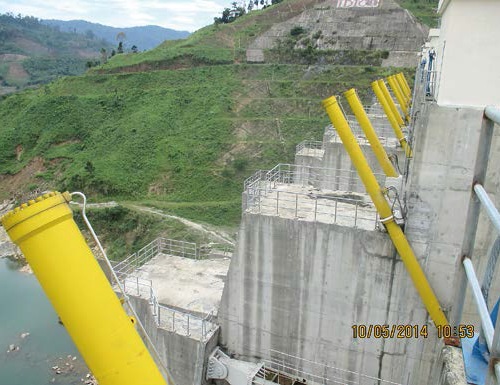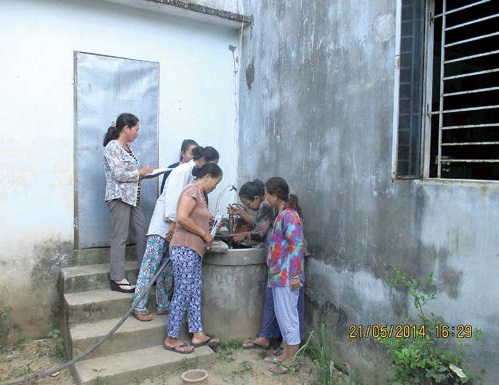To assess the impact of hydropower plant operations on the daily lives of the people of Dai Hong Commune, Dai Loc District, who live downstream of several hydropower plants on the Vu Gia- Thu Bon River in Central Vietnam.
 |
Centre for Social Research and Development |
 |
Tran Thoi |
 |
|
 |
JPY 400,000 |

Dak Mi hydroelectric power plant

Check the water level
Research Background
As shown in the revised budget, we will reduce budget items such as printing by using cheaper materials and producing fewer copies. CSRD will cover the additional communication costs. Instead of buying one computer and one camera to be used in the research project, and then donated to the community, we shall buy only the camera. We shall use a computer from our office for the project but we cannot donate it to the community.
Project staff will buy the cheapest possible tickets for their train travel; and the Project Officer will deliver the training rather than bringing in a trainer to do this job.
1.Gain permission to work in the Dai Hong Commune.
2.Hold a community meeting in each of two villages to explain the research project and its intended outcomes, and allow discussion of the issues, including how the research workers will be chosen. CSRD will invite the representatives of commune, and village leaders.
3.(NEW) After the Citizen Scientists have been chosen, CSRD will organize a survey of upstream communities affected by hydropower plants. This survey will help the researchers to understand the operating procedures of a hydropower plant, and they will see the impact of hydropower on upstream communities before they start their research.
4.The CSRD project leader (Tran Thoi) will meet with the women to train them in data collection and to develop the list of questions. It is unlikely that the women will be well-educated, and Thoi will use a range of training and data gathering techniques which do not assume a high literacy level.
5.The Citizen Scientists will be allocated households to interview, so that a good cross-section of the communities are interviewed. Focus of the questioning will be on life before and after 2008 when the hydropower plant began operations. Whilst the negative impacts are often spoken about, we are also seeking evidence of positive impacts.
6.Answers to questions will be a choice of number 1 to 5, to allow for simple positive and negative responses. Narrative responses will also be collected.
7.Analysis of the raw data will be undertaken by the project leader supported by an independent expert.
8.In collaboration with the Citizen Scientists, Thoi will prepare the project report. The team will include personal experiences, drawings and photos to illustrate the report findings.
9.CSRD will organize a second community forum for representatives from communities who live in areas close to future hydropower plant sites. We shall encourage these people to learn from the Dai Hong experience. We hope that our Citizen Scientists will participate in the second forum, so that they continue to learn about organizing meetings and about the importance of raising their voice.
At the same time, Citizen Scientists and the project leader will invite authorities to present their issues and their suggestions for resolution.
10.CSRD will distribute the report to local authorities and hydropower companies so that the people who make decisions have access to a broader range of information than they have had in the recent past. [Jan. 2014]
Final Report (abstract)
Others
